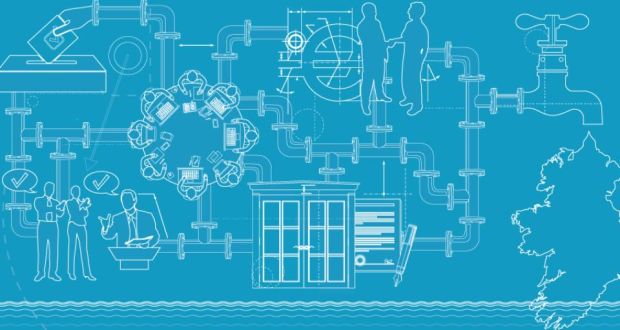Customers of Irish Water are being asked to tell the utility the colour of their front door and provide details of their neighbours’ property in a bid to get the right bills to the right people.
Irish Water has admitted it is seeking help in matching some of its water meters to the right house on their datatbase due to the high number of properties here with similar addresses.
The company said that it is working to match some 50,000 meters to the right home after it emerged that a customer was asked to identify the colour of her front door and gate in an attempt to help Irish Water establish which meter was linked to her house.
“Around 40% of Irish addresses are non-unique,” Elizabeth Arnett, head of communications at Irish Water, said.
“These are predominantly in rural Ireland where people give their townland as their address, but in some towns some addresses could be given as ‘Main Street’ for example,” she said.
Ms Arnett said having put in some 500,000 meters, the utility found that 40% of the addresses are non-unique and that Irish Water is working on establishing the correct house for 10% of these.
Elizabeth Arnett Irish Water spokesperson
By way of example, Ms Arnett said that the utility found two people with the same name and date of birth living in adjacent houses in the same rural location. Both only gave the townland as their home address.
The issue arose after one rural-based Irish Water customer contacted the company to enquire as to how they were certain that the correct meter was linked to their home.
“Each Irish Water meter installed at the outside stop valve has an individual number which is linked to the property it is attached to.
“When you registered your property you also receive an application number which identifies your property. However, as your address is what we call a ‘non-unique address’, meaning that one or more other properties in your area share the same address. This means that we are unable to pinpoint your property on our system,” the email from the company read.
Photo from Fliuch Off
The Irish Water representative then went on to ask that the customer supply identifying features such as:
The colour of the property.
The colour of the door.
Details about their neighbours’ properties.
The colour of the gate.
The side of the road the property is on and for
any directions from nearest town or landmark.
Meanwhile, the CSO has “provisionally” placed Irish Water on the Government’s balance sheet, in a further sign of uncertainty over whether it will pass EU financial tests or if it can be considered an off-the-books company.
Irish Water can only be classed as a private firm — meaning the full €500m cost will not fall on the exchequer — if it passes strict Eurostat financial tests in May, which were originally due to take place this month.
However, these tests are solely dependent on whether the body can prove the majority of its funding comes from non-state, private income — a key reason for the Government’s recent increased push for people to pay water charges.
The CSO report stressed the move to place Irish Water on the balance sheet is preliminary, while a Government spokesperson said the Coalition remains “absolutely confident” it will pass the financial tests.
However, People Before Profit TD Richard Boyd Barrett said it is ludicrous to think this will be the case.



















